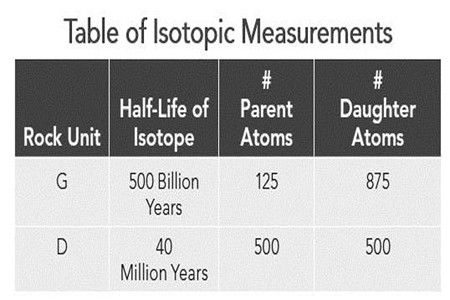There are three possible fates for the universe: 1. eternal expansion; 2. total collapse; or 3. some equilibrium condition with no further motion. What conditions might favor one result over the other?
A) Critical velocity—is there enough momentum to continue expansion forever?
B) Critical density—is there enough mass in the universe to cause gravitational collapse?
C) Critical volume—is the universe large enough for unlimited expansion?
D) Critical energy—is there enough energy in the universe to maintain either expansion or collapse?
B
You might also like to view...
Climate and vegetation vary with
A. latitude only. B. longitude only. C. altitude only. D. latitude and altitude. E. altitude and longitude.
Recycling and incineration are interrelated in that
A. recyclable materials must be sorted before they go into an incinerator. B. plastic is an important fuel for incinerators. C. often recycling organizations have more recyclables than they can sell and must burn the surplus. D. All of these statements are correct. E. None of these statements is correct.
Using the data in this table, calculate the number of half-lives that have passed for the granite (unit G on this table)?
A. 1 B. 2 C. 3 D. 4 E. 5
Statistically determining how much harm a particular hazard can cause is called risk management.
Answer the following statement true (T) or false (F)